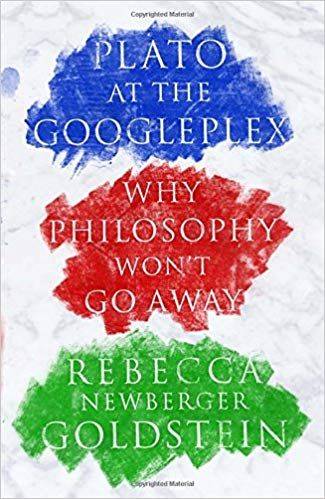
Download Plato at the Googleplex: Why Philosophy Won’t Go Away PDF EPUB
Author: Rebecca Goldstein
Pages: 480
Size: 903,11 Kb
Publication Date: March 4,2014
Category: Greek & Roman
Can be philosophy obsolete? Will be the ancient queries still relevant in age cosmology and neuroscience, not forgetting crowd-sourcing and cable information? The acclaimed philosopher and novelist Rebecca Newberger Goldstein offers a dazzlingly primary plunge in to the drama of philosophy, revealing its concealed function in today’s debates on faith, morality, politics, and technology. But Plato’s part in shaping philosophy was pivotal.
�
At the foundation of Western philosophy stands Plato, who got about as very much wrong as you would anticipate from a thinker who resided 2,400 years back. On her behalf way to taking into consideration the place of philosophy inside our ongoing intellectual existence, Goldstein tells a fresh tale of its origin, re-envisioning the extraordinary lifestyle that produced the person who created philosophy.
�
Nonetheless it is mainly the fate of philosophy that issues her. How would he deal with the sponsor of a cable information plan who denies there may be morality without religious beliefs? Have they currently arrived? What would Plato label of Google, and of the theory that knowledge could be crowd-sourced instead of reasoned out by specialists? And if it can, how come so ancient a amount as Plato of any continuing relevance? Plato at the Googleplex is certainly Goldstein’s startling investigation of the conundra. With a philosopher’s depth and a novelist’s creativity and wit, Goldstein probes the deepest problems confronting us by permitting us to eavesdrop on Plato as he assumes today’s world.
�
Suppose Plato came to existence in the twenty-first hundred years and embarked on a multicity speaking tour. May be the discipline only a means of biding our period until the researchers arrive on the picture?
(With black-and-white photos throughout. How would he solution a neuroscientist who, going to scan Plato’s mind, argues that science provides definitively answered the queries of free of charge will and moral company? Will philosophy itself ever make improvement? She interweaves her narrative with Plato’s personal choice for bringing suggestions to lifestyle—the dialogue.� How would this individual mediate a debate between a Freudian psychoanalyst and a tiger mother on how to improve the perfect kid?)